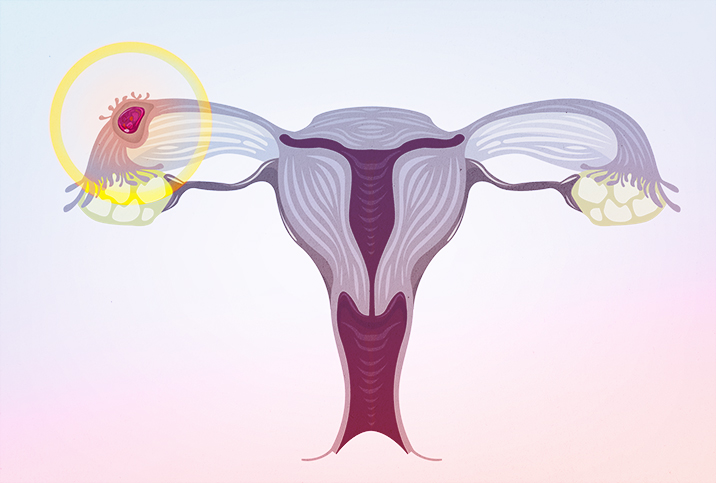Learn the Early Signs of Pregnancy

When it comes to pregnancy symptoms, everyone is different. While morning sickness and a missed period are common indicators that there's a bun in the oven, there are many lesser-known early signs of pregnancy most women experience.
There's no rule for when pregnancy symptoms kick in. Nearly 90 percent of women experience symptoms by the eighth week of pregnancy, but you might start experiencing pregnancy symptoms earlier than that.
"Some of my patients have told me over the years that they knew the minute they conceived. That's highly unlikely, but some folks start noticing some symptoms fairly early on," said Mary Jane Minkin, M.D., a clinical professor in the department of obstetrics, gynecology, and reproductive sciences at the Yale University School of Medicine.
What early signs of pregnancy should you be on the lookout for?
Common pregnancy symptoms
"The earliest signs and symptoms of pregnancy vary between individuals. Some pregnant people have no symptoms," said Lauren Demosthenes, M.D., a senior medical director at Babyscripts, a virtual maternity care company headquartered in Washington, D.C.
If you do experience early pregnancy symptoms, Demosthenes said these are some of the most common ones that women report:
- A missed period
- Lower abdominal cramps
- Breast or nipple tenderness
- Spotting or implantation bleeding
- An increase in urinary frequency
- Nausea, with or without vomiting
- Fatigue
- Headaches
- Food aversion and food cravings
Every woman—and every pregnancy, for that matter—is different, so you may experience all, some or none of the symptoms above. Minkin added that some of the less common early pregnancy symptoms include:
- Achiness in the pelvis
- Bloating and/or gas
- Constipation
Some of these signs, including cramps, spotting, bloating and fatigue, are also common symptoms of PMS, so it can be hard to tell the difference without taking a pregnancy test.
A pregnancy test is an excellent and easy way to figure out if bleeding and symptoms are due to period or pregnancy, Minkin said. Some brands of home pregnancy tests make an early result test sensitive enough to detect pregnancy a few days before your missed period.
"So you can tell very early if you are indeed pregnant," Minkin explained.
Another reason for taking a pregnancy test, besides making sense of symptoms, is it encourages healthy choices that are good for both mom and baby, Minkin said.
"Although all obstetricians encourage patients to have excellent health habits when they are trying to conceive…nothing reinforces good behavior like a positive pregnancy test," Minkin said.
If you are trying to get pregnant or think you may be pregnant, Minkin recommended avoiding smoking, drinking and drugs. She also advised adding a prenatal supplement with extra folic acid to your diet.
Warning signs that something is wrong
Along with normal and healthy pregnancy symptoms, there are some warning signs that indicate something is wrong.
"Bleeding in early pregnancy may indicate an impending miscarriage or an ectopic pregnancy," Demosthenes said.
An ectopic pregnancy is when a fertilized egg implants outside the uterus, often in a fallopian tube.
"Risk factors for ectopic pregnancy include a history of pelvic infection, like chlamydia or gonorrhea, history of ectopic pregnancy, history of endometriosis or a history of infertility that may be from scarred tubes," Demosthenes continued.
Experiencing pain in one side of your abdomen can be another common sign of ectopic pregnancy. Unfortunately, an ectopic pregnancy is never viable. It's important to seek immediate medical attention if you suspect an ectopic pregnancy because it can be life-threatening for the woman.
"Miscarriage is not terribly uncommon, so any bleeding in early pregnancy may be alarming," Demosthenes said. "Any woman with bleeding in early pregnancy deserves to be seen by a medical provider. Some women will have nausea and vomiting beyond the usual. This may lead to dehydration and weight loss [and] should be evaluated and treated by a medical provider."
'Although all obstetricians encourage patients to have excellent health habits when they are trying to conceive…nothing reinforces good behavior like a positive pregnancy test.'
If you think you might be pregnant and are experiencing vaginal bleeding, abdominal pain and excessive vomiting (known as hyperemesis gravidarum), contact your OB-GYN or healthcare provider.
"Nearly 50 percent of the pregnancies in the U.S. are unplanned," Demosthenes said. "With planning, women can be aware of when they become pregnant and understand what symptoms they can expect. With knowledge comes power, which includes understanding and even enjoying these symptoms.
"If pregnancy is unplanned and pregnancy termination is needed, medical care may be more difficult to obtain than it used to be," Demosthenes warned. "All women who can become pregnant should understand these new changes and turn to reputable sources like the American College of Obstetricians and Gynecologists or Planned Parenthood for support and advice."


















